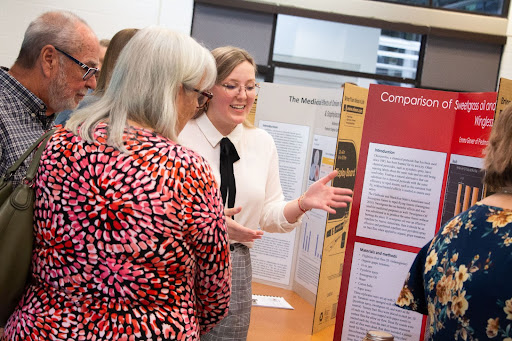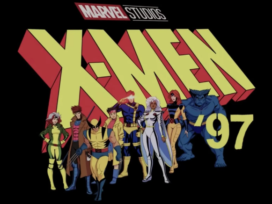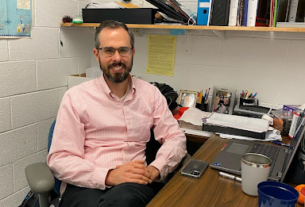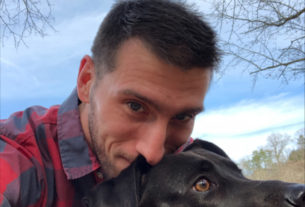
SCI 299: Advice from a Student’s Perspective
PVCC’s science majors have access to a one-of-a-kind research opportunity. While capstone research courses are most commonly available to juniors and seniors at four-year universities, students in the natural sciences at PVCC are required to complete SCI 299: Supervised Study in Science, usually during their second year of study. In this course, students devise and execute a research project under the supervision of a faculty mentor in one of four offered subject areas: biology, chemistry, geology, and physics. At the end of the semester, a poster presentation is held during which they share their findings with their mentors, other faculty members, and the public. Having taken SCI 299 this past spring, there is some information relevant to the course that I would like to share.
Firstly, though listed as a two-credit course, SCI 299 has no concrete time commitment beyond class meetings, so students should plan accordingly. A microbiology or chemistry project might require numerous one-hour laboratory sessions, while a zoology or geology project might demand whole-day research sessions, but just a few of them. With the help of your faculty mentor and laboratory manager, you should get a clear idea of what your schedule will look like early on and work around it.
Next, it is important to remember that as a research student, you have access to the entire PVCC science faculty, and this should be taken advantage of. While your assigned faculty mentor comes first and foremost in overseeing the development and execution of your project, you are free to consult other faculty members that also specialize in the field you are studying. Asking multiple faculty members for their ideas, advice, and guidance proved useful when developing the idea for my project. While researching, you can compare and contrast faculty members’ opinions with your assigned mentor and discuss their differing approaches to the same problem.
Regarding staying motivated and inspired, it is important to remember that your journey through SCI 299 is anything but linear. It is guaranteed that you will encounter roadblocks of all kinds, from laboratory unavailabilities, to limited literature on your chosen topic, to sometimes monotonous laboratory work that makes you question your interest in your chosen topic. You might do very well throughout the semester and then struggle when practicing for the poster presentation session in the final two weeks of the course. Remember that the purpose of this class is not only to expand your knowledge on a specific topic but also to prepare you for the many unexpected hurdles characteristic of scientific research and careers.
I will finish with the single most important piece of advice repeatedly given by the course coordinators and faculty mentors of SCI 299: get ahead. You should do your best to get ahead in any way that you can, whether by developing your project idea early, ordering supplies before you start the project, or trying to finish your laboratory work as soon as possible. Developing your research scheme in advance gives you the time to find something that you are truly passionate about and zero in on an fascinating but workable idea. Securing supplies as soon as possible can safeguard your project from shipping delays and shortages. Working ahead of schedule can buffer procedural mistakes, laboratory unavailabilities, and even make room for you to expand your original project plan within reason.
As a science major at PVCC, you will be responsible for directing yourself through a research course. You will have command over your exact topic of study and your laboratory schedule. Having completed prerequisites taught in a uniform and systematic manner, SCI 299: Supervised Study in Science puts your many acquired skills into practice. Creativity takes control.







